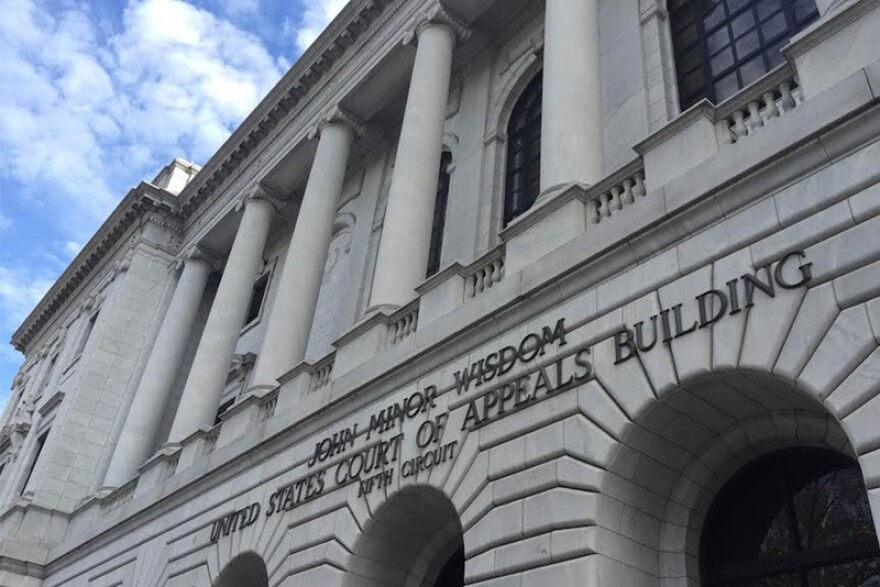The full 5th Circuit Court of Appeals, which has jurisdiction over Texas, ruled against plaintiffs who said their constitutional rights had been violated by Dallas County’s predetermined schedule for setting bail. The plaintiffs in Daves v. Dallas County argue that pre-trial bail decisions were so formulaic and swift that poor arrestees are unfairly kept in jail longer than people who have an ability to pay.
In 2018, plaintiffs sued several officials in Dallas County: the magistrates who set bail, judges who oversee them, and the county sheriff who carries out bail orders. U.S. District Court Judge David Godbey found there were constitutional violations and told the county to consider a defendant’s ability to pay when setting bail and to give them a chance to present evidence within 48 hours of arrest.
The from the 5th Circuit vacates that order. The majority decision ruled on procedural issues only. The judges did not decide on the constitutionality of Dallas County’s bail setting system.
The opinion focused on two areas: Do county misdemeanor judges and state district felony judges who hear cases act for Dallas County or the state of Texas when they make bail decisions? And, can the lawsuit be considered by a federal court?
Nine judges on the 5th Circuit said both the misdemeanor and felony judges are actors of the state of Texas, not the county, and therefore could not be sued.
“The state constitution and statutes compel a finding that defendant County Judges act for the state at times,” Judge Leslie Southwick wrote for the majority. “We determine that creation of a bail schedule is one of those times.”
This opinion overruled part of a .
The opinion did not address whether magistrate judges, who preside over initial bail hearings, could still be sued for constitutional violations.
“The Magistrate Judges are not parties to this appeal, and we do not determine whether they are state or county officials,” the opinion said.
On the second matter – whether federal courts can even consider this case - the 5th Circuit sent the case back to the district court. It essentially told Godbey to look at whether the federal courts can have any role at all. In a concurring opinion, three judges agreed with the majority only on this issue — called “abstention.”
Four 5th Circuit judges dissented. On the question of abstention, Judge Catharina Haynes said the majority “breaks with the First, Third, Ninth, Eleventh, and D.C. Circuits, all of which have correctly held that abstention is inappropriate in the pretrial detention context.”
She said the majority ignored precedent and extensive fact finding by the lower court in relying on procedural issues to overrule Godbey.
“The majority opinion reframes the merits as jurisdictional issues and goes on to dismiss them,” wrote Haynes, before detailing many ways in which both the felony and misdemeanor judges can be considered county actors.
Got a tip? Email Bret Jaspers at bjaspers@kera.org. You can follow Bret on Twitter .
�Ļ�ӰԺ is made possible through the generosity of our members. If you find this reporting valuable, consider . Thank you.




